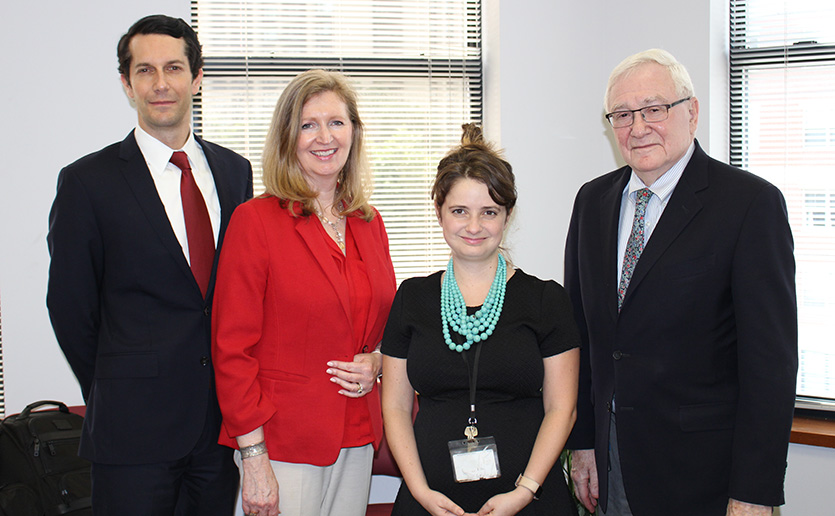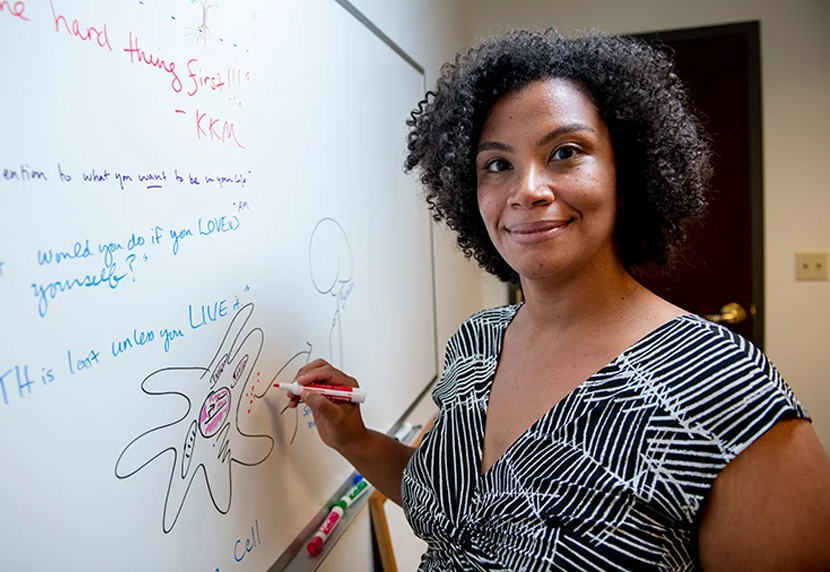Massachusetts General Hospital is using philanthropy to bring mind-body medicine to underserved communities facing enormous stress, including people who are homeless and victims of Hurricane Maria, which devastated Puerto Rico in 2017.
Research has shown that stress management is key to a longer, healthier life for everyone.
Through the support of donor Randy Watts, the hospital’s Benson-Henry Institute for Mind Body Medicine (BHI) has offered two training scholarships per year, since 2017. The scholarships cover tuition for healthcare providers to earn certification in the institute’s Stress Management and Resiliency Training (SMART) Program. The SMART program has been proven effective in reducing stress and improving overall health in patients with anxiety, depression, high blood pressure and other medical conditions.
The Watts Scholarships were created to train providers who work in underserved communities. One is given to a Partners HealthCare clinician. The other, to a community healthcare provider.
The annual Watts Scholarships are one of many examples of how Mass General responds to community needs and helps organizations, such as the Boston Health Care for the Homeless Program, better serve their missions.
Helping the Underserved
Gregory L. Fricchione, MD, the BHI’s director, says many people who are homeless are estranged from family and friends and away from work environments, all which provide a sense of connectiveness, which helps people cope with stress.

“People mistakenly think of mind-body medicine as being only for middle-class and wealthy individuals who want to enhance their health and performance,” Dr. Fricchione says. The BHI strives to prove otherwise. Research has shown stress management is key to a longer, healthier life for everyone, he says.
Dr. Fricchione says we face an epidemic of stress-related chronic illnesses. Today, many are afflicted with conditions caused or worsened by stress, such as diabetes, obesity and cardiovascular disease.
“These diseases are rampant in our modern society because of our inability to deal with persistent and chronic stress,” he says.
Supported by Philanthropy
The BHI’s SMART program teaches self-care interventions such as mindfulness, meditation, adaptive thinking and the ability to overcome negative thoughts. It also highlights other ways to reduce stress, such as humor, spirituality, exercise, sleep and good nutrition. There are programs for patients and healthcare providers.
“It is my hope that this gift will inspire others to donate.”
So far, more than 50 clinicians, including doctors, nurses, psychologists, social workers and licensed counselors, have been certified. Another 137 clinicians, some from other countries, are working on certification.
Recently, Sarah Wettenstein, a social worker at the Boston Health Care for the Homeless Program, gained certification through the Watts Scholarship. She says without the Watts Scholarship she could not have afforded the training.
Donor Randy Watts says, with the scholarships, he wanted to create a “meaningful opportunity” for providers. “It is my hope that this gift will inspire others to donate — in order to extend mind-body medicine techniques to practitioners and patients who, otherwise, might not benefit from these proven ways to reduce stress. Now, in its third year, the program is expanding, with proven results, in communities nationwide, just as we had hoped it would.”
Mind-Body Medicine
Some of Ms. Wettenstein’s clients struggle with addiction and untreated medical conditions, including mental illness. They live in chaotic environments, from the street to shelters.
The skill of observing negative thoughts can help break old patterns, like drug use.
Mind-body medicine can help them find calm amidst the chaos, Ms. Wettenstein says. She teaches mindfulness to help clients with addiction pause before satisfying a craving. And she expanded her meditation group to include cultivating more adaptive responses to stressful events.
There is one rule for the meditation group: Dark clouds can’t overshadow bright moments. If someone says, “The sun was shining today, but I stubbed my toe,” everyone shouts, “No, buts!”
The skill of observing negative thoughts can help break old patterns, like drug use, Ms. Wettenstein says. When people relapse, Ms. Wettenstein tells them, “Yes, you made a mistake. However, you are not a mistake.” She reminds them, “You came back this week. You are still working on it and that shows resilience.”
For Dr. Fricchione, the SMART program’s mission is perfectly met with Ms. Wettenstein’s work, by buffering people from the stressors of life.
To support the Benson-Henry Institute for Mind Body Medicine, please contact us.


